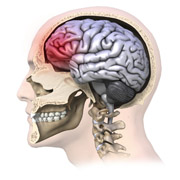Research and Innovation, UNL Office of

Center for Brain, Biology, and Behavior: Faculty Publications
Document Type
Editorial
Date of this Version
2017
Citation
Published in Developmental Neuropsychology 42 (2017), Issue 2: The Neuropsychology of Sport and Performance, pp. 55-57. doi: 10.1080/87565641.2017.1309656
Abstract
Neuropsychological theory has been a mainstay for understanding pathology within the brain-behavior context. However, our theories for predicting superior behavior are not as well developed. Sport neuropsychology was developed on the presumption that athletes represent a population in a relatively well-controlled environment for studying brain pathology due to injury. This study of pathology within a high-performance environment has been responsible for identifying the effects of mild traumatic brain injury (mTBI) on individual functioning. Far less attention has been paid to the other end of the performance continuum, and yet, viable brain-behavior hypotheses should hold true across the spectrum of function from neuropathology to exceptional performance. While sport continues to be a good model for study, other high performance activities are relevant as well, such as enhanced memory required of chess-masters, methods for enhancing learning in all environments, etc. The distinction for this journal would be the neurological processes that relate to behavioral function.
Included in
Behavior and Behavior Mechanisms Commons, Nervous System Commons, Other Analytical, Diagnostic and Therapeutic Techniques and Equipment Commons, Other Neuroscience and Neurobiology Commons, Other Psychiatry and Psychology Commons, Rehabilitation and Therapy Commons, Sports Sciences Commons


Comments
Copyright © 2017 Taylor & Francis. Used by permission.